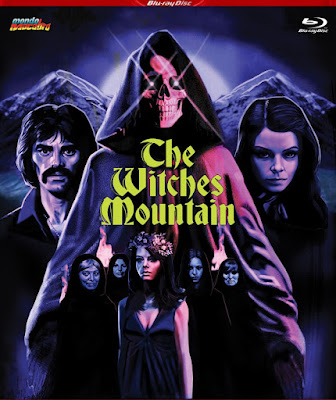“I understand those who want to live against this century, but I fear those who believe they can live outside of it.” – Emmanuelle Arsan – Mon Emmanuelle, leur pape et mon Eros
Cults erect out of myth. Myth gives rise to cults. Their members become so enamored in myth that they become grossly detached from reality. Yet, they’ll maintain a strong conviction and belief that they are the ones who are really in tune with reality, above all others. And when this happens, people get hurt.
For fans of ‘60s/70s Italian thrillers, it’s the prospect of a deadly hippie cult that gives a film like Shadow of Illusion its primary appeal to genre explorers, and while that promising aspect might bring us here, we end up finding even more to like about it. One of the film’s strong points is that it does integrate Egyptian mythology, particularly The Osiris Myth, into its plot rather nicely, even to the point of provoking further viewer interest.
Shadow of Illusion is
directed by Mario Caiano (Nightmare Castle (1965) and Eye in
the Labyrinth (1972)) and is quite the excavation for the Eurocult
archeologist. It is indeed an enjoyable but unusual watch that kind of feels at
home alongside other paranoid Italian occult thrillers like All the Colors
of the Dark (1972), The Cat in Heat (1972), or even The Perfume
of the Lady in Black (1974).








